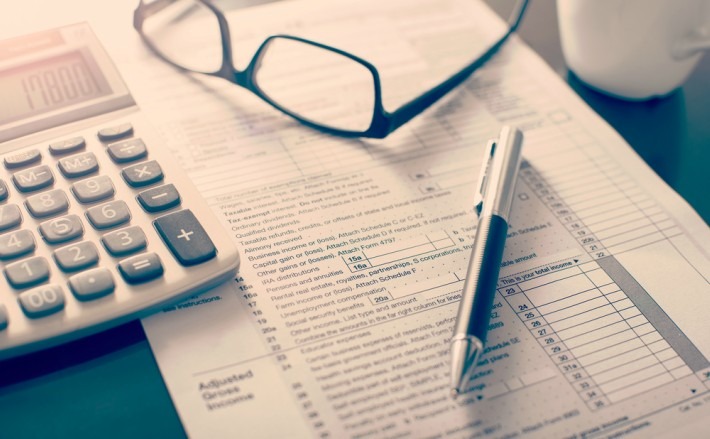Financial considerations before you move to Canada
Although the best things in life in Canada are free, getting there and building your life there are not! These are the essential financial matters to address before you make your move to Canada.
Moving to another country involves careful financial planning. Canada is easier than some, because we speak the same language and much data and information is available online. The following are the essential steps you need to take prior to your move.
Before you get there
When moving to Canada you’ll normally be paying out from the word go. If you fly over to scout out locations or for job hunting, you’ll be paying for hotels, car hire, living expenses… The second expense is visa and associated fees. There’s not much you can do about those, and this isn’t a sensible area to skimp on.
Removals is something you can get planning. If moving a whole household, paying for a 40-foot container can make sense, costing maybe just C$1,000 more than a 20-foot container and allowing you to get all your stuff in, from bicycles to furniture. Why flog it cheap at car boot sales and then buy at full price a month later?
Accommodation is the next big cost, and rents in Canada are pretty much on a par with the UK (although homes are significantly cheaper to buy). You’ll need to pay up front for a month or two, as well as a deposit. Do read upon the local market via online classified ads, especially if you’re negotiation from the UK.
Other expenses will include nursery or schools for the kids, a mobile phone and internet coverage, money for food and sightseeing, car hire…. It really helps to make your move smoother if you can plan all this from the UK. Write down all your living expenses now and imagine if you’ll be spending that in Canada. After all, you’ll want to eat out, visit local attractions and maybe even entertain your new Canadian friends (although they’ll probably be treating you – Canadians are nice like that!).
Ask Smart Currency Exchange to prefund your account with dollars and you can make the payments efficiently and at a really good exchange rate.
If you’re planning on obtaining a mortgage, it’s best to speak to a mortgage advisor right away so that you know it’s secured
How will you finance your property purchase
Your very first step should be to sit down and work out how to fund the purchase, i.e. from savings, with a mortgage, or from the sale of your property in the UK.
If you’re planning on obtaining a mortgage, it’s best to speak to a mortgage advisor right away so that you know it’s secured, only then will you be able to start taking the next steps. Once your mortgage is approved you will know how much you need as a deposit and how to budget for the rest of your move. To be put in touch with a mortgage provider contact the Resource Team on 020 7898 0549.

We recommend seeking guidance from a tax professional.
Top tip
It’s at this point that we recommend opening a free, no-obligation account with our trusted currency partners, Smart Currency Exchange. Gaining access to your personally assigned trader at this early stage will guarantee that you always save money on each of the international transfers you’ll need to make before, during, and after the purchase.
Tax affairs
If you plan on relocating to Canada permanently, you need to alert the Inland Revenue. They need to know about this change in circumstances so they can determine your new tax liabilities. As these will vary depending on your personal circumstances, we always recommend consulting a tax expert who will be able to assist you with the following:
• Establishing when and how to notify HMRC of your imminent departure
• Determining your tax liabilities
• Advising on the best path for getting the most from your pension
• How the Statutory Residence Test is likely to affect you
• Advising on UK tax returns and tax
• Giving you the peace of mind that comes with knowing your affairs are in order
Inheritance tax
As soon as you own property in another country you need to draw up a will there to ensure the interests of your family are protected in the event of something happening to you. Our Resource Centre can put you in touch with a lawyer who can assist you with this, contact them on 020 7898 0549.
Managing your pension
If you receive pension payments, you need to decide whether you’ll continue to receive them into a UK account, or whether you would like to transfer it to Canada. Should you choose to transfer it, it’s important to understand that your pension will be frozen at the rate that it’s at from the first time you claim it in the country. For this reason, if you know that you’re relocating to Canada permanently, it might be more beneficial to transfer your pension into a Qualifying Recognised Overseas Pension Scheme (QROPS) or a Self-Invested Personal Pension (SIPP). We recommend speaking to a financial advisor about these schemes because if you’re eligible, they can afford you greater control over your hard-earned savings, and reduce your tax bill.
We recommend speaking to a financial advisor about these schemes because if you’re eligible, they can afford you greater control over your hard-earned savings, and reduce your tax bill.
Insuring your new life
It’s important to insure your new life in Canada from the day that you arrive. Speak to our trusted insurance provider about insuring your property, contents, and vehicle, plus it may make sense to take out private medical insurance to cover you before you become eligible for Canadian healthcare. Call the Resource Centre on 020 7898 0549 and they will put you in touch.
Opening a Canadian bank account
Canada’s banking system is fantastic, and the larger banks allow you to open an account before you arrive in the country. This will come in handy, as you’ll be able to transfer funds prior to arrival to use whilst getting yourself set up. Usually you’ll only need a couple of forms of ID to set up your account, and you shouldn’t encounter any set up fees. We always recommend obtaining a reference from your UK bank about your credit history, which will help when the time comes to get a credit card.
Download your free copy of The Canada Buying Guide today to receive a full breakdown of all the financial matters you’ll need to address when buying in Canada.

The Property Buyer’s Guide to Currency will help you:

